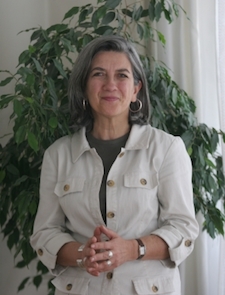Nedret Öztan started the Institute for Psychological Services in 1998 to help individuals, families and institutions. Her specialty is crisis intervention, secondary trauma, psychological first aid, worker support, depression, stress as well as marital therapy.
She graduated from Ankara University in 1974 and got a scholarship to continue her education in the United States. She got her masters degree in psychology from the Catholic University of America in Washington D.C. in 1979 and started her doctorate studies in the New School for Social Research in New York. She was trained at Eastern Group Psychotherapy Institute. She worked in a day hospital for schizophrenics, doing individual as well as group sessions. She continued her work later on with The Development of Human Potential Program. She was trained in family therapy, she conducted individual and group sessions as well as family sessions with adolescents with the goal of drug use prevention.
She returned to Turkey in 1986. After working as an instructor in Ankara University, she transferred to Bilkent University in 1988. She worked as a psychologist in the Student Counseling Center at Bilkent University until 2006 and taught in the Psychology Department at Middle East Technical University. Since 2008, she has been teaching as a part-time instructor at Bilkent University in the Psychology Department.
Nedret Öztan who participated in efforts to start The Turkish Psychologists Association from 1974 to 1976, continued her support after returning to the country. She served as the member of the executive council, secretary general and vice president between 1988 and 1998. She was the editor of the Turkish Journal of Psychology and served as the President of the Association from 2010 to 2012. She is a member of the Trauma Unit and has served a the representative of the Association in the Union for Psychosocial Support Services in Disasters (UPSD, APHB in Turkish) from 2006 to 2016.
She was part of the disaster assessment team which UNICEF organized to go to the earthquake area in the 1999 Marmara Earthquake. She also took part in a psychosocial school support project run by the Ministry of Education-UNICEF as an expert and consultant from 2000 to 2005. She helped in preparing the Psychoeducation Training Handbook, as well as supervising and training in the field. The program was applied in 25 cities in the country as a preventive program in schools against traumatic experiences. She also worked in Iran after the 2004 Bem earthquake as a consultant, with the Ministry of Education-UNICEF, helping to develop a national psychoeducational program for those affected populations. She was also a part of the team that worked in Pakistan after the earthquake in 2005, as a consultant for Pakistan Red Crescent and IFRC. In both countries she conducted training for the professionals who were going to work with the affected population and contributed to the training handbooks prepared for psychosocial interventions.
She was also the head of the psychosocial support team after the Bingöl Earthquake of 2003, Mardin Massacre of 2009 and Elazığ Earthquake of 2010. She conducted the initial assessment and helped designed the psychosocial interventions, trained psychologists, social workers and counselors to provide psychosocial support in the area.
Nedret Öztan has arrived in the earthquake region the same day in the October 2011 Van Earthquake, as the part of the psychosocial assessment team. Later on she took part in the coordination and training activities for psychosocial support services in the area. She is one of the editors of the Handbook of Psychosocial Interventions published by APHB. She has contributed to a number of trainings done by AFAD, KIZILAY, the Ministry of Health and the Ministry of Family and Social Policies. She was the coordinator of psychosocial support program after the Reyhanlı bombing in May 2013. She continued supervising and preparing the psychosocial team in the area for the future interventions. She prepared the guidelines for KIZILAY to work with children after traumatic experiences.
She was a part of the psychosocial assessment team in The Ministry of Family and Social Policies after the Soma Mine Accident in May 2014. After the first interventions and psychological first aid work, she took part in training and supervision of the psychosocial support team working for the Ministry. She also gave training and supervision support after Ermenek Mine Accident in November 2014. After 2015-2016 bombing in Ankara, she provided psychological support to the survivors and their families. She was also the coordinator of the psychosocial support services provided by The Ministry of Family and Social Policies after Kilis Rocket incidents in 2016 and the Bodrum Earthquake in 2017. She has also prepared the handbooks to be used in future trainings and services.
She is a part-time instructor in the Department of Psychology in Bilkent University. She has worked with the UNHCR as a consultant between 2002-2016, doing trainings as well as conducting refugee psychological assessments and crisis intervention interventions. She also worked in setting up the psychosocial support system for the first refugee camp in Hatay for the Syrians coming to Turkey after the war started in 2011. She has been working with the General Directorate for Immigration since 2013 to train psychologists, social workers and personnel in refugee psychology, stress management, crisis intervention, secondary trauma, psychological first aid and worker support. She is also working as a consultant for IOM and AFAD in psychosocial support and worker support areas, as well as preparing handbooks and guidelines.
